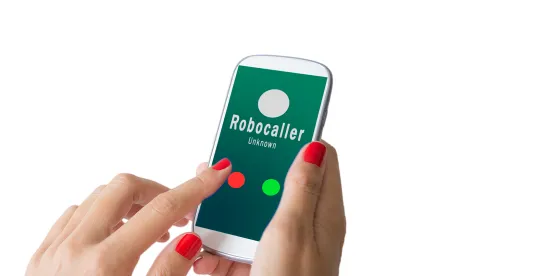I told you Humana was in trouble.
The Medicare giant is facing massive TCPA exposure following a ruling by a federal court in Kentucky certifying a class containing over 23,000 individuals.
In Elliot v. Humana, 2025 WL 1065755 (W.D. Ky April 9, 2025) the Court certified a wrong number TCPA class defined as follows:
[a]ll persons or entities throughout the United States (1) to whom Humana placed, or caused to be placed, a call (2) directed to a number assigned to a cellular telephone service, but not assigned to a current account holder of Humana (3) in connection with which Humana used an artificial or prerecorded voice, (4) four years from the filing of this action through the date of class certification.
According to Plaintiff, Humana’s own data sets shows wrong number designations for 23,682 individuals that received at least one prerecorded call from Humana after they received a wrong number designation, a violation of the TCPA.
Not good.
Humana countered that the Plaintiff has failed to demonstrate any actual called parties that were not Humana customers but the Court stated “common sense” confirmed accounts coded “wrong #” or the like were sufficiently included in the numerosity count.
The Court next identified three common issues it asserts Humana did not adequately challenge: (1) whether Humana initiated non-emergency prerecorded calls to non customers; (2) whether Humana used a prerecorded voice to make calls to class members; and (3) whether the number called was a cellular telephone. The Court appears to acknowledge whether calls were made to a wrong number is not common but it refused to deny certification on that basis.
Humana argued the case should not be certified because “wrong number designations could refer to typographical errors, calls where a Humana team member called the wrong number, intentional contact with individuals who said, ‘wrong number because they didn’t want to talk,’ and Humana members who incorrectly reported a wrong number” but the Court was unmoved. The Court would not “ignore the plain meaning of ‘wrong number’ to accommodate several errors or inconsistencies Humana found in self reviewing their own record.”
Eesh.
At bottom the court acknowledged that not every call recipient noted in the Humana data set might be a wrong number call recipient but it intends to use that data set as a starting point–certify a class based on the data, and then use declarations as part of the claims process to determine who was, and was not, a class member.
Not good. At all.
The interesting thing is that it is very tough to determine potential exposure here.
Per the Plaintiff, every member of the class received at least one call after the wrong number notation. That would appear to set damages at $11,500,000-$34,500,000.00.
However TCPA damages for wrong number claims don’t work that way. Calls made even before the wrong number note are also actionable–if it is a real wrong number. So the exposure might be much higher, depending on how many calls Humana was placing here.
Then again, if very few of the 23k or so individuals with wrong number notations were “real” wrong numbers then the exposure could be much much lower. The Court’s order simply does not provide enough information to assess these issues.
What we do know is that Humana is now facing a certified TCPA class action and it is fair to say there are at least 8 figures on the line here. A few obvious take aways:
- This is another prerecorded call case. Using such technology is the easiest way to get yourself caught up in a TCPA class action.
- Wrong number TCPA class actions continue to be the most dangerous sort of case to defend against. These cases are far more likely to be certified than other types of TCPA cases. You MUST defend yourself by engaging in SMART data practices– Humana was hung on its own records folks– and also using the FCC’s Reassigned Numbers Database (they just lowered their rates)!
Notably the Plaintiff’s counsel in this case was Tom Alvord of LawHQ— Dr. Evil and his crew. These guys are good folks.




 />i
/>i

